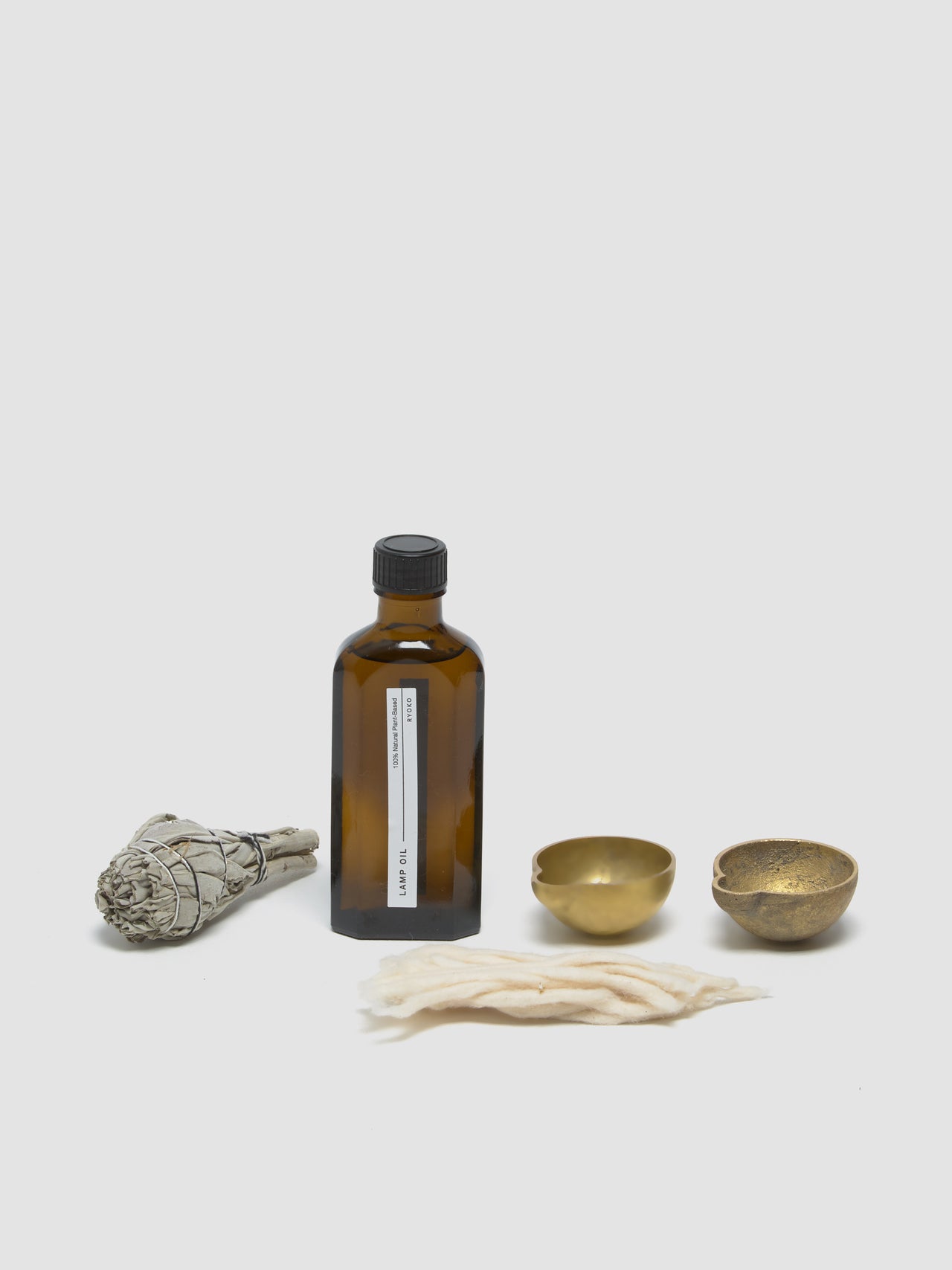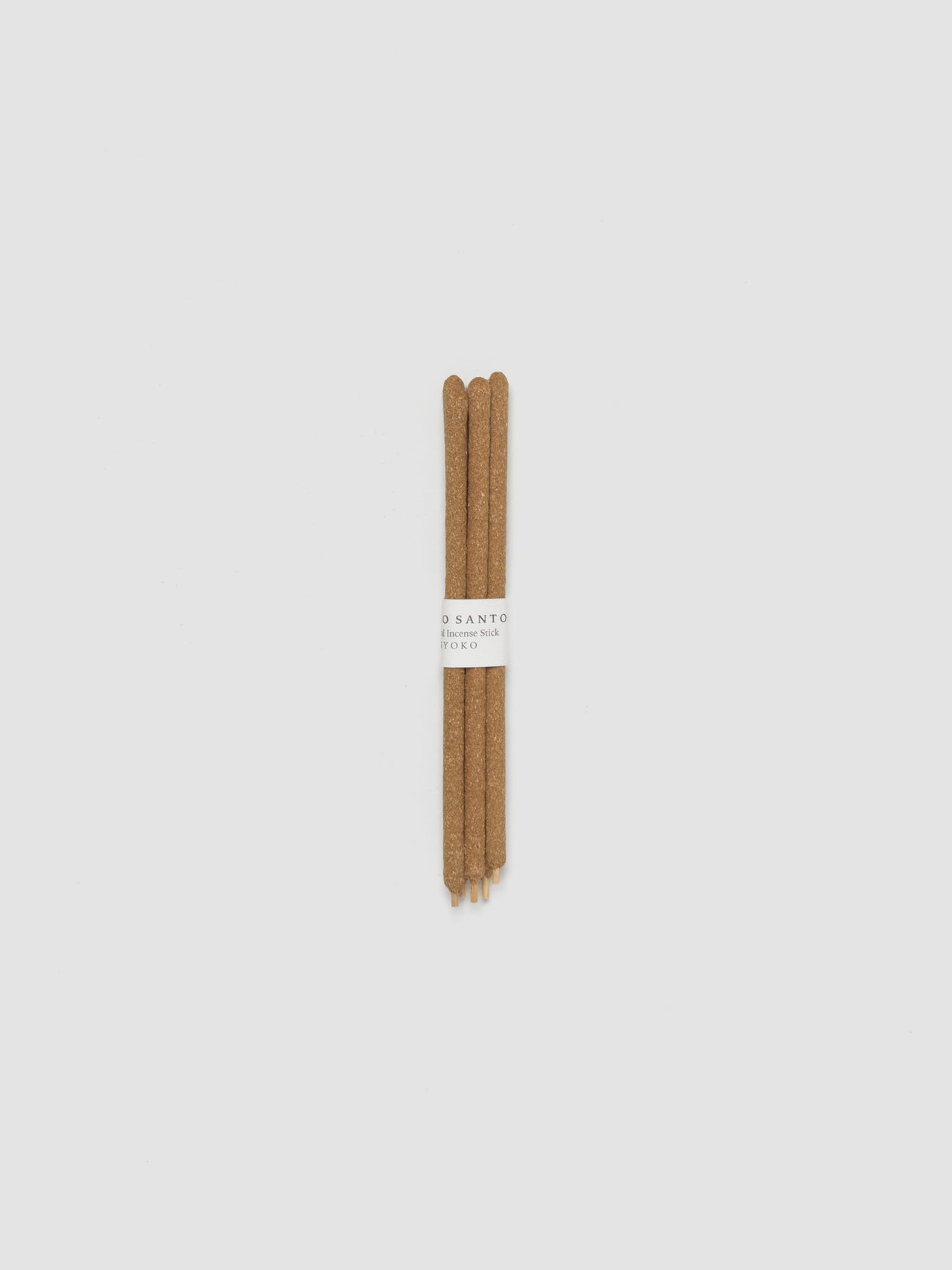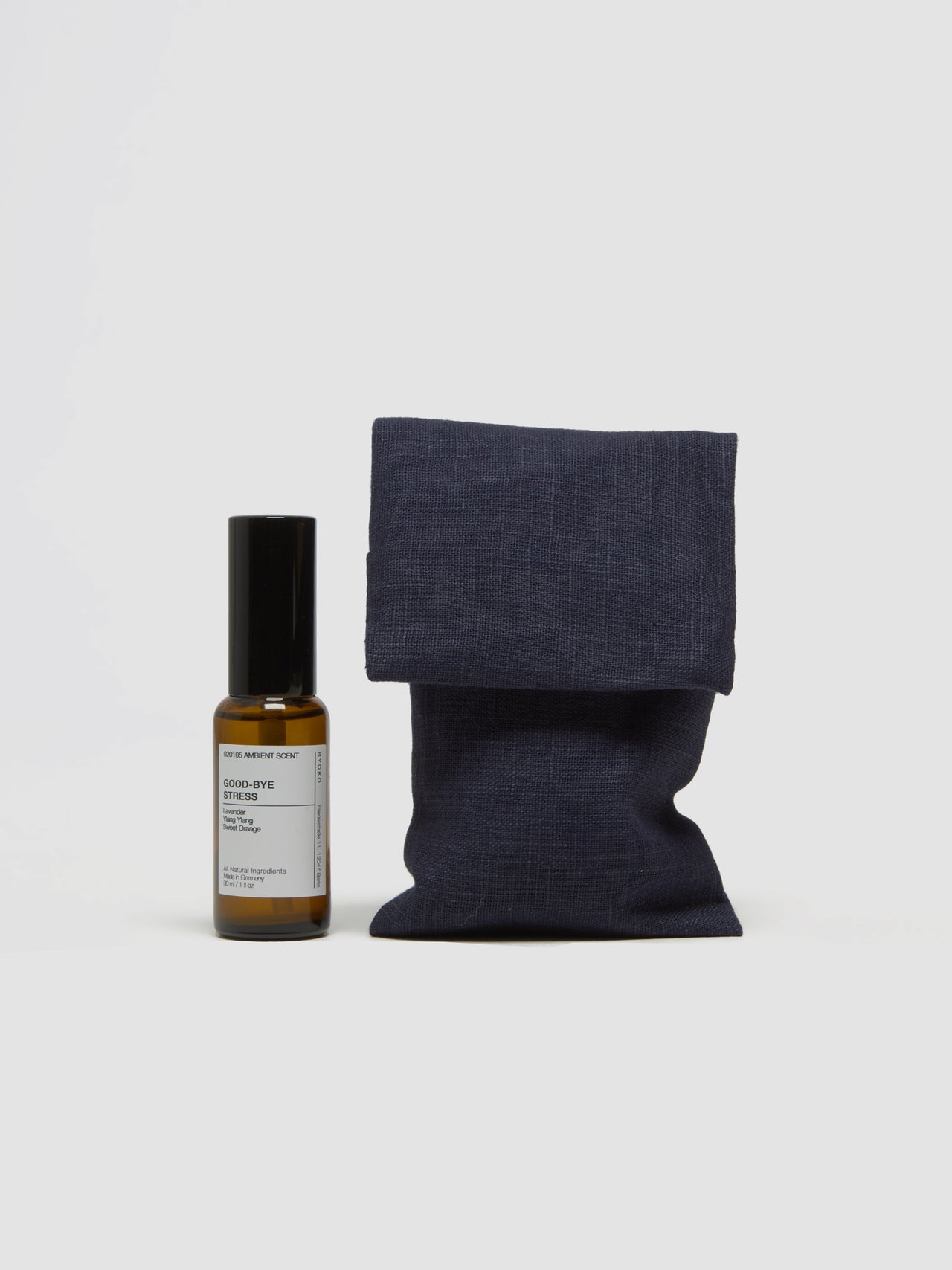V: Can you tell us about the inspiration behind Ryoko Berlin and how it came to be?
R: We have a deep appreciation and respect for ancient civilisations and indigenous cultures, including Japanese Shinto beliefs, their rituals, traditions, healing systems, and plant medicines. We are equally inspired by botanical culture, the beauty of nature, and the magic and wonder of human senses—especially scent and touch—which are at the core of our creative journey. Since establishing our boutique in 2015, craftsmanship has also held a special place in our hearts, as have other forms of art that resonate deeply with both of us, whether it be painting, music,
contemporary dance, architecture, design, and more.
D: I used to travel a lot for filmmaking, but now I’m more stationary because we run a personal shop, and it’s a community. We know our clients and their preferences. It’s a journey together. We don’t have employees, and we enjoy the exchange with our customers.














